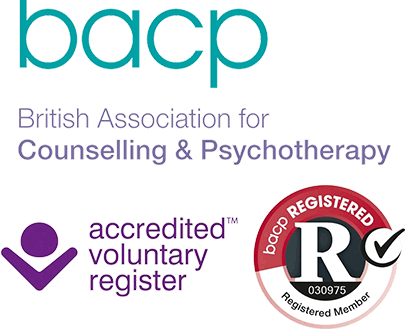Even if the relationship was not a good one, a separation or divorce can be one of the most painful experiences in our lives. The relationship that we believed would be with us for the rest of time, that would nurture us and hold us in our old age, that would contain all of our hopes and dreams is gone, and for some the end of a relationship, particularly if it is one marked by betrayal, is worse than a death. We’re plunged headlong into uncharted territory, our life is disrupted and appears in ruins,and the breakup is felt across the whole of our emotional, psychological, sexual and financial lives creating deep anxieties about the future. Will I end up alone? What will life be like without my partner? How will I manage to finance myself? How will I do childcare or hold down a job?
When a relationship breaks up the attachments that were there (see my article Attachments in Couple Relationships) don’t automatically end; there can be residual feelings for years to come, which might be expressed through bitterness, despair or hatred towards the other person. Sometimes even when we’re at the receiving end of a relationship breakup we still have loving feelings for our ex partner; we’re still attached. This is because our attachments are usually at such a deep level, they’ve performed such a primary function, that it’s hard to let go. A good analogy is Velcro; when we Velcro one piece of material to another thousands of tiny pins attach; when we pull the material away there’s a loud ripping sound, for the persons-in-relationship it’s as if many tiny little emotional pins are being ripped out of our heart and soul, and some of them are refusing to go (the “Teflon Couple” has, presumably yet to be found, since being Teflon they probably wouldn’t attach in the first place).
After a breakup we will grieve for the relationship. According to our attachment style, we will do the grieving in different ways and use different strategies to cope. Securely attached individuals tend to look for support, which is often the best coping strategy. Avoidantly attached individuals tend to dismiss the relationships and to withdraw. Anxiously attached individuals are more likely to pay attention to the distress. After the end of the relationships securely attached individuals tend to have more positive overall emotional experience than insecurely attached individuals.
Whatever our attachment style we still need to navigate the Loss Cycle, whose
components are:
Denial – Anger – Bargaining – Depression – Acceptance
• Denial: A feeling that it isn’t happening, you hide things from your friends and
family, you find it hard to deal with the reality of the situation
• Anger: you behave in a reactive and often irrational way, you feel like you’re
out of control and become short-tempered and aggressive, you hate you ex
and hate the relationship
• Bargaining: you might think “maybe we could have a second chance – if
only” or “he or she would change if he or she knew how much I cared”
• Depression: You might cry uncontrollably, have no interest in anything, feel
like you have a mental fog or experience sleep disruption or withdraw (see my
article What is Depression?)
• Acceptance: your emotions become more balanced, you can acknowledge
both good and bad bits of your relationship, you find yourself more able to
manage your strong emotions and you have hope for the future
Any of these stages may be skipped, repeated, or rearranged, depending on one’s situation and personality and sometimes we can get stuck in a stage. Whatever stage you might be in, it’s important to remember that grieving is essential to the healing process in a relationship breakup. Working through the pain of grief is exactly what helps you let go of the old relationship and move on.
Counselling
Consider counselling if you feel “stuck” at one of the loss stages. Counselling can help you untangle conflicting emotions and support you through a time of change, it will allow you to express your feelings in a safe and confidential setting; it will also allow you to explore the broken relationship, resolve any issues you still might have and encourage you to move on and develop new, enriching relationships over time.








